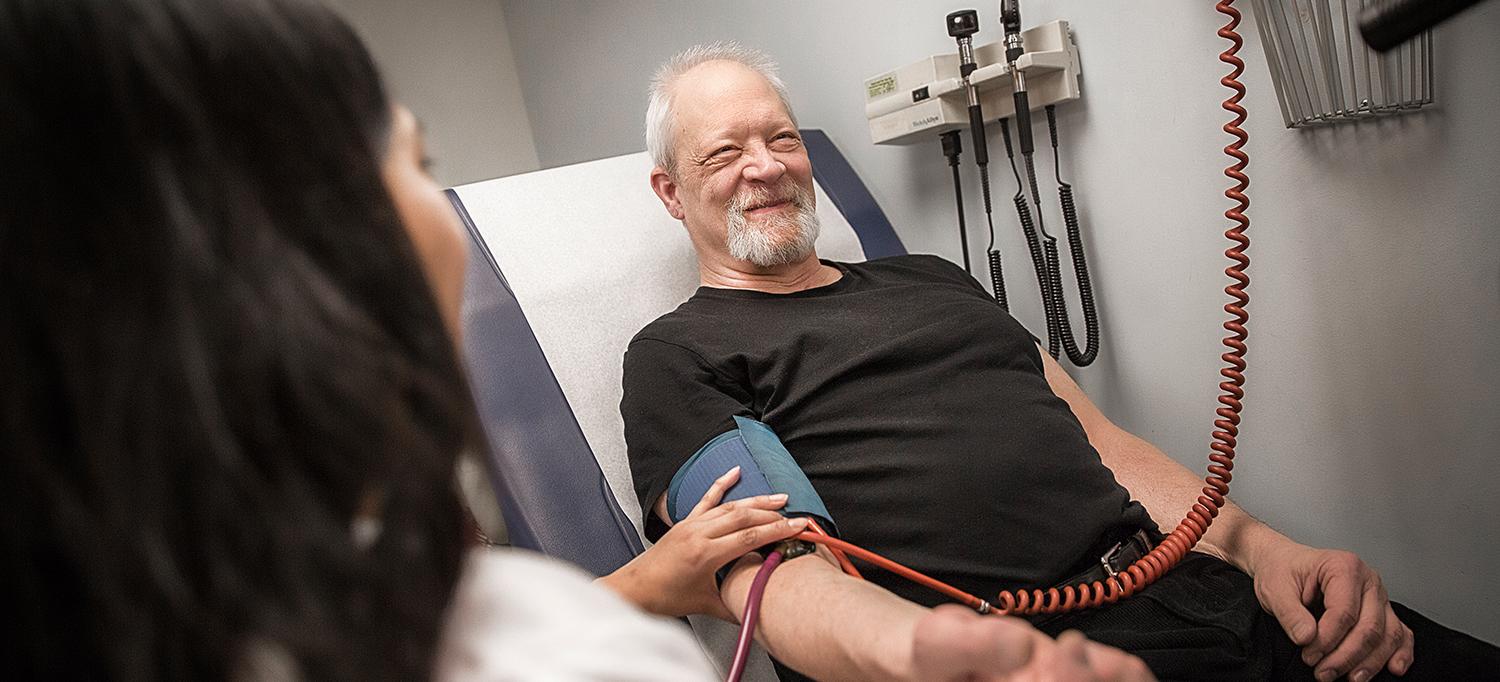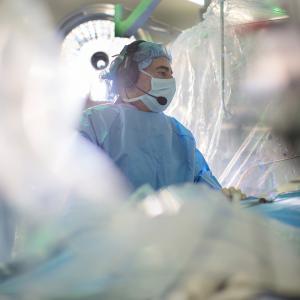
An implantable cardioverter defibrillator keeps Alan’s heart under control and alerts NYU Langone’s Heart Rhythm Center if there are problems.
Photo: NYU Langone Staff
When Alan was in his late 50s, he suddenly started to tire easily while hiking or working out. He blamed it on being out of shape, but a trip to the cardiologist revealed the true cause. Alan was diagnosed with several heart problems, including ventricular tachycardia, a condition that causes a rapid and irregular heartbeat.
If not treated immediately, ventricular tachycardia can trigger cardiac arrest and lead to sudden death. As a preventive measure, Alan’s doctors at the Heart Rhythm Center recommended that he receive an implantable cardioverter defibrillator (ICD), which monitors heart rhythm and uses electrical energy to correct any irregularities.
Alan was hesitant at first about receiving the ICD. Surgery is required to place the unit, about the size of a large pocket watch, under the skin in the chest and connect it to the heart with small wires. But he eventually agreed and today has no regrets.
“You get used to it pretty quickly,” Alan says. “Within two weeks I was back at the gym doing pull-ups.”
“I feel much more comfortable knowing my ICD is there and is functioning as intended. I’m less anxious. It helps a lot to assuage my concerns.”—Alan, Age 65
Every few months Alan’s heart speeds up, and the device delivers an electric charge that coaxes it back into a normal rhythm. This pacing is so gentle that he does not feel it. The ICD can deliver a stronger, lifesaving jolt when necessary. Alan experienced this once.
“I was sitting there working on my laptop, and all of a sudden my computer fell on the floor,” Alan says. “I had passed out just momentarily, and then got shocked.”
VIDEO: Alan, 65, received an implantable cardioverter defibrillator to manage his ventricular tachycardia symptoms.
Alan felt sweaty and disoriented afterward, but didn’t realize he had passed out. His ICD recorded what happened and sent a report to the Heart Rhythm Center, where specially trained nurses monitor any irregular patterns or ICD activations. The surveillance monitoring nurse at the Heart Rhythm Center alerted Alan to what happened and had him come in immediately for a checkup.
The device Alan was once skeptical of has given him invaluable peace of mind.
“An ICD is basically an insurance policy,” Alan says. “It’s a level of protection and monitoring that you cannot have otherwise. I resisted that notion at first, but then became appreciative of the wisdom of that advice.”

